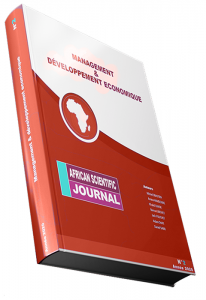Assessing the Role of Government Education Spending in Reducing Poverty: A CGE Model for Morocco
DOI :
https://doi.org/10.5281/zenodo.15683623Mots-clés :
Government Expenditure, Education, Poverty reduction, CGE model, MoroccoRésumé
ABSTRACT
This study explores the impact of public education expenditure on poverty reduction in Morocco, employing a computable general equilibrium (CGE) model that is based on the 2007 Social Accounting Matrix (SAM) of the Moroccan economy. The simulation findings show that increased spending on education promotes economic growth and helps to reduce poverty. Nevertheless, the success of this policy depends on macroeconomic stability, the availability of resources and technological progress. The results show that directing investment in education towards low-income households generates the greatest poverty reduction effects. In addition, continued employment growth, supported by flexible labor markets, is essential for long-term poverty reduction. The research recommends increasing investment through school expansion, conditional cash transfers and teacher incentives, particularly in rural areas. In addition, it is essential to align educational outcomes with labor market demand to improve economic opportunities for the poor.
Keywords: Government Expenditure, Education, Poverty reduction, CGE model, Morocco
Téléchargements
Publiée
Comment citer
Numéro
Rubrique
Licence
(c) Tous droits réservés African Scientific Journal 2025

Ce travail est disponible sous licence Creative Commons Attribution - Pas d'Utilisation Commerciale - Pas de Modification 4.0 International.





















